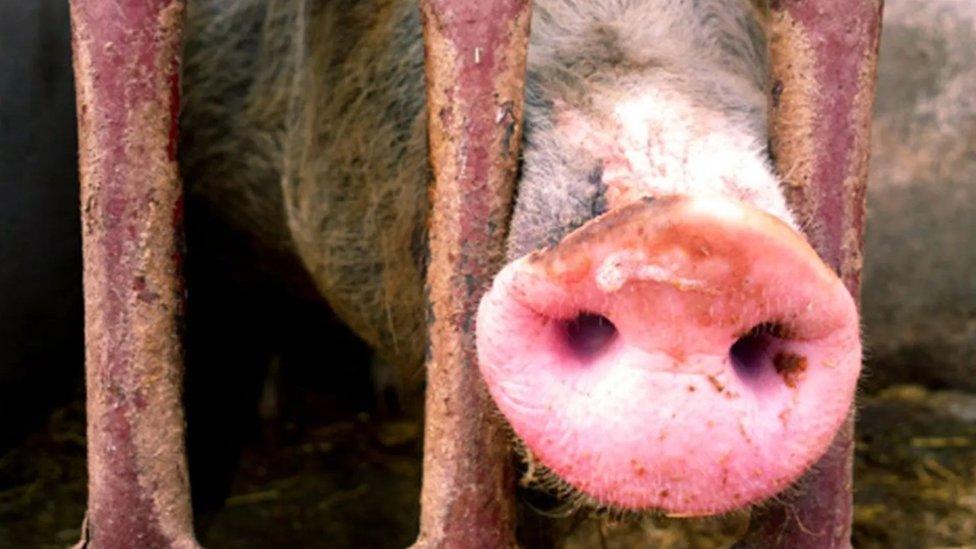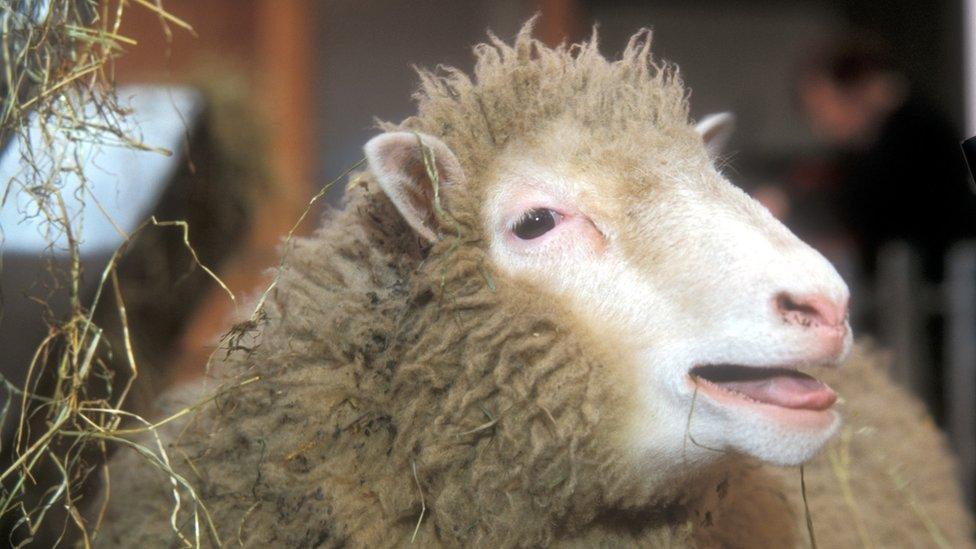Genetically-engineered pigs to be reared to fight disease
- Published

Porcine Reproductive and Respiratory Syndrome is one of the most costly animal diseases in the world
Pigs are to be genetically engineered to resist one of the world's most costly animal diseases.
Porcine Reproductive and Respiratory Syndrome costs about £1.8bn ($2.5bn) in lost revenue each year in the US and Europe.
Researchers at Edinburgh University's Roslin Institute hope it will lead the way to the pigs being available to global pork-producing markets.
The pig research, however, raises some animal welfare issues.
Critics say creating disease-resistant animals will discourage farmers from improving the welfare of their livestock.
Editing genetic code
Some believe the way the animals are kept can make them less prone to contracting the virus that causes the syndrome.
The disease causes breathing problems and deaths in young animals and can result in pregnant sows losing their litters.
Vaccines have mostly failed to stop the spread of the virus that causes the syndrome, which is endemic in most pig-producing countries worldwide.
The Roslin Institute has produced pigs that can resist the disease by editing their genetic code.
Prof Bruce Whitelaw, Roslin Institute interim director, said: "Roslin is rightly recognised for pioneering animal biotechnology that enables genetic engineering of farmed animals."
The research received funding from both Genus and the Biotechnology and Biological Sciences Research Council.
- Published4 July 2016

- Published25 July 2018

- Published20 June 2018
